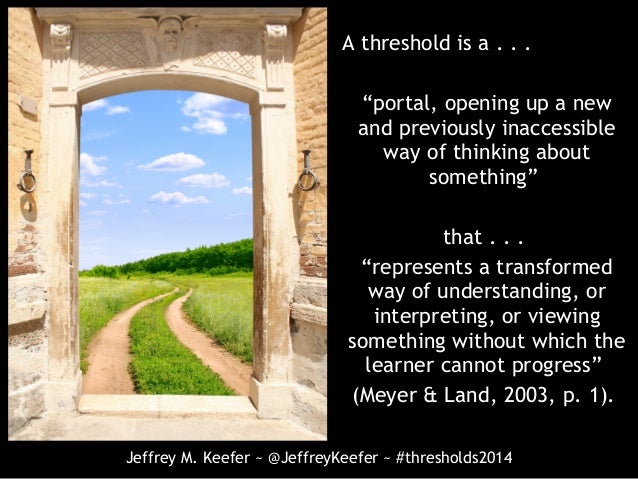RESEARCH AS AN INQUIRY
The purpose of
higher education is to produce confident, independent, autonomous individuals
who are able to actively participate in society through continuous development
and lifelong learning. The Information Literacy module
was developed to promote independent thinking and the student’s ability to
interpret knowledge and make final judgments. As I work through this module I am
discovering that its content and assessment methods have been adapted to
encourage my participation and involvement as a student.
The previous
lecture was based on the “research as an inquiry” frame
``Research is
formalized curiosity. It is poking and prying with a purpose.'' (Zora Neale
Hurston)
The Concise
Oxford Dictionary (1982) defines research as ``careful search or inquiry
after or for or into; endeavour to discover new or collate old facts etc. by
scientific study of a subject''. In other words, research is a systematic
process of collecting, analysing and interpreting information (data) in order
to increase our understanding of the phenomenon about which we are interested
or concerned (Leedy & Ormro 2005:2). From another perspective, research is
the method used to add to knowledge in a field of discipline. We need to understand
how to carry out research and what qualifies as good research both in the
workplace and in our studies.
A teaching scenario
for the Frame “Research as Inquiry.”
Conduct a research and submit a research report on : how the internet has affected the information
behavior of post-graduate students at the University of the Western Cape
1.
What is the use of electronic resources compared
to print sources?
2.
Where do postgraduate students access the
electronic resources?
3.
Which online resources do postgraduate make use
of?
Activities
-Students must identify the key concepts to find the relevant information on the topic, use the library catalogue and use sources that are in different formats.
Activities
-Students must identify the key concepts to find the relevant information on the topic, use the library catalogue and use sources that are in different formats.
-Write a background and an introduction to justify why is it necessary to conduct this research.
-Literature review to ascertain what are the findings of other researchers who conducted the same report.
-Conduct interviews with post-graduate students.
-Use the library statistics to check the usage of the online resources.
-Present and analyse the data that you have gathered.
-Conclude and make recommendations for future.
-Literature review to ascertain what are the findings of other researchers who conducted the same report.
-Conduct interviews with post-graduate students.
-Use the library statistics to check the usage of the online resources.
-Present and analyse the data that you have gathered.
-Conclude and make recommendations for future.
Learning
outcomes
Students must be able to:
Ø Explain
how research can contribute to the growth of knowledge in the field of
information science
Ø Analyse
a range of research paradigms in order to gauge their appropriateness to the
field of library and information science
Ø Conduct
and present a literature review using a variety of information sources
Ø Evaluate
and decide on the appropriate research methods to solve different research
problems
Ø Apply
the principles and theories of conducting research projects
Ø Use statistical tools to organise ,summarise and
interpret data
Ø Write and present a research report
Ø Write and present a research report
How the
activity relates to knowledge practice or disposition
Part of what
students will learn in this activity is how to carry out research.
This entails the
identification of a research problem, selection of a methodology to investigate
it, analysis of the data and the writing of a research report. The second thing
that they will learn, which is equally important, is how to evaluate research
and what the criteria of good research are. Most articles and books that
students read as part of their studies or for work purposes are based on research,
and they need to be able to evaluate whether or not that research meets the
criteria of good research. Students will make decisions based on other people's
research and conclusions. If they are not able to evaluate the research for
themselves, then it is very easy to make flawed and faulty decisions.
